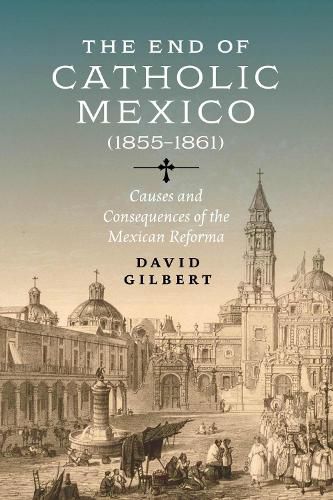Readings Newsletter
Become a Readings Member to make your shopping experience even easier.
Sign in or sign up for free!
You’re not far away from qualifying for FREE standard shipping within Australia
You’ve qualified for FREE standard shipping within Australia
The cart is loading…






In The End of Catholic Mexico: Causes and Consequences of the Mexican Reforma (1855-1861), historian David A. Gilbert provides a new interpretation of one of the defining events of Mexican history: the Reforma. During this period, Mexico transformed from a Catholic confessional state to a modern secular nation, sparking a three-year civil war in the process. While past accounts of the Reforma have foregrounded its class dimensions and portrayed it as a liberal triumph over conservative elites, Gilbert instead argues that the Reforma was a religious war fueled two competing interpretations of the Catholic faith. These competing interpretations, Gilbert contends, generated sharp disagreements about Mexico's future, which further polarized the country and led to a culture war centered on religion.
Gilbert's fresh account of this pivotal moment in Mexican history will be of interest to scholars of Latin American religious history, nineteenth-century church history, and US historians of the antebellum republic.
$9.00 standard shipping within Australia
FREE standard shipping within Australia for orders over $100.00
Express & International shipping calculated at checkout
In The End of Catholic Mexico: Causes and Consequences of the Mexican Reforma (1855-1861), historian David A. Gilbert provides a new interpretation of one of the defining events of Mexican history: the Reforma. During this period, Mexico transformed from a Catholic confessional state to a modern secular nation, sparking a three-year civil war in the process. While past accounts of the Reforma have foregrounded its class dimensions and portrayed it as a liberal triumph over conservative elites, Gilbert instead argues that the Reforma was a religious war fueled two competing interpretations of the Catholic faith. These competing interpretations, Gilbert contends, generated sharp disagreements about Mexico's future, which further polarized the country and led to a culture war centered on religion.
Gilbert's fresh account of this pivotal moment in Mexican history will be of interest to scholars of Latin American religious history, nineteenth-century church history, and US historians of the antebellum republic.